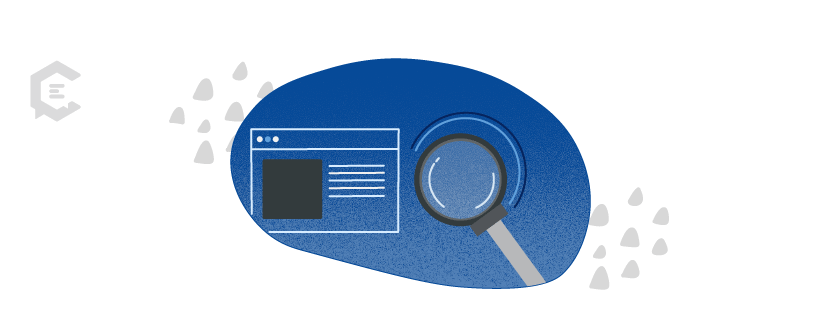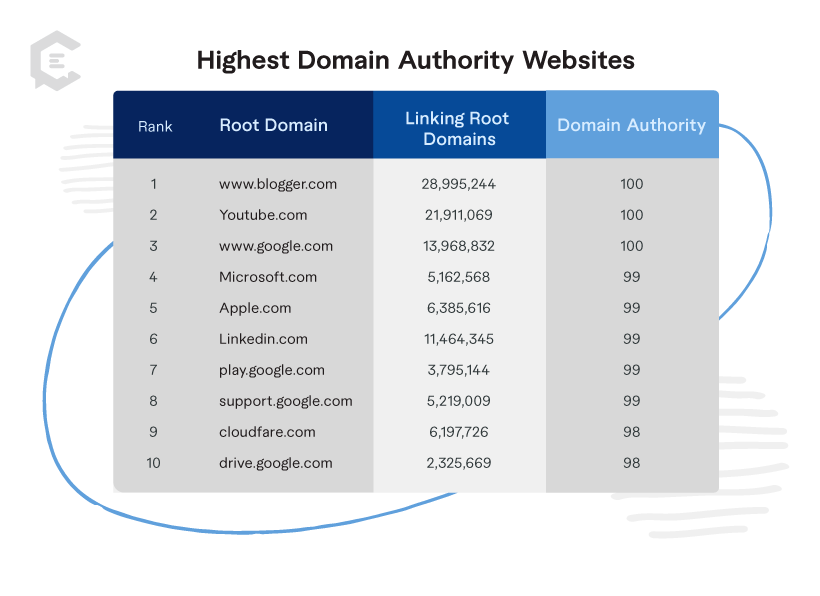Learning how to increase your domain authority is a crucial component of your online success.
Once upon a time (read: before Google became a thing), search engine optimization metrics focused mostly on text length, keywords, accurate HTML tags, and internal and outbound links.
For instance, if a viable keyword was “plastic,” your goal might have been to insert this word as often as possible in your website copy, whether it made sense or not. Mentioning “plastic” a few times on your site pages would increase the likelihood of a top rank on a search engine.
Fast forward to — well, now — and it’s safe to say that a successful SEO plan involves more than stuffing keywords into content. Achievement in this endeavor involves paying attention to on-page SEO strategies and off-page SEO techniques to achieve a high search engine results page (SERP) ranking.
Part of that strategy should include analyzing and improving your domain authority. Dedicating part of your efforts to achieving a high DA can help increase your website’s visibility. This, in turn, can drive more organic traffic to your website and power you to the top of that SERP.

Defining domain authority
The domain authority is a ranking metric developed by SEO marketing consultant Moz, which offers a domain authority checker to determine a website’s DA. Knowing that DA tells you where your domain ranks on a SERP, relative to your competition.
Understanding this is important, as it explains what a high DA doesn’t do. As in, a high DA doesn’t mean a top ranking on Google.
What it does mean is that if a user queries a search engine for assistance you can provide, a high DA pushes your domain to the top of that SERP, above your competition.
Now, Moz’s DA metrics aren’t the only game in town. The website authority checker offered by Semrush also compares websites and pages with an eye toward generating metrics and analytics to improve SERP rankings.
And yes, there is a page authority (PA) analysis as well. While the DA measures a domain’s potential SERP ranking, the PA ranks each individual page against other pages.
If you plug your domain into the Moz or Semrush tracking tool, you’ll get back information about your domain and the pages within that domain.
Getting your DA score
Let’s take a look at what happens when you input your domain into Link Explorer. After some calculating, the result will return somewhere between 1 and 100 (with 100 at the ultimate end).
Your goal is to get that DA as high as you can. One way to do this is to include backlinks and internal links to other root domains.
Going further with this, a root domain is the combination of a domain name (your company’s name, for instance) and the top-level domain (think .com, .net, or .edu) that appears at the end of that name.
So, for example:
- clearvoice is the domain name
- .com is the top-level domain
- clearvoice.com is the root domain
Are you with us so far? Okay. Moving on…
The domain authority analysis considers your website’s backlinks to other root domains, especially the number of unique links. “Unique” means from different root domains, rather than different page links from the same root domain.
Let’s say you include the following links on your website:
- https://resources.clearvoice.com/blog/predictive-seo/
- https://resources.clearvoice.com/blog/what-is-domain-authority/
The resulting DA analysis counts both URLs as a single unique link. This is because these pages are part of one domain: clearvoice.com.
“Easy peasy,” you might be thinking. “All I need to do is find a bunch of root domains to link to, and I’ll be golden. Watch out, high domain authority. I’m coming for you!”
Well, not so much. Similar to content placement, the quality of your links is far superior to how many you have. If your website boasts business content, links to forbes.com or wsj.com will count more in the DA algorithms than your link to joesbusinessnews.com (which is not a real website, by the way).
Just linking for the sake of linking won’t win you DA brownie points.
What’s a good DA rank?
The answer to the question above is: It depends.
The chart below lists Moz’s top-10 DA web domains, including the number of root domains. And yes — these boast high DAs.

Before you panic and start thinking, “I’m nowhere near blogger.com’s or YouTube.com’s DA!” calm down. Let’s go back to the purpose of the domain authority.
It is a ranking of your domain, relative to that of your competition. If your website’s mission is to host trillions of blogs (like blogger.com) or offer a space for many vlogs and videos (YouTube.com), then yes. You want a DA of 100.
But the chances are pretty good that few domains in your industry or niche have that high of a DA. So, if the highest domain authority among your competitors’ websites is 58, your goal would be to generate a domain authority of 60 or higher.
4 ways to increase your domain authority
With the “what” and “why” behind us, let’s examine four ways to increase your domain authority.
1. Create compelling, relevant content
Content is the foundation of your domain authority success; it solves problems, and it answers questions. People look for it and share it. Content placement and development should align with your on-page SEO strategy.
With this in mind, focus on developing brilliant, well-formatted, and interesting blogs, ebooks, visuals, videos, and other content types that provide value to your audience. And make sure what you have is far superior to what your competition offers. Speaking of which …
2. Study your competition
Analyze their DA, and if it’s higher than yours, consider what they’re doing that you aren’t. Research how those businesses are boosting their domains’ visibility. Look into the origin of their backlinks. And yes, consider their content.
Then, after assessing everything your competition does, take the time and effort to do it better.
3. Get relevant backlinks
Repeat after me: Domain authority is determined, in part, by backlinks to quality root domains. Quality root domains, in turn, are those that provide information that is relevant to your content.
Create high-quality content that solves problems and include eye-catching visuals like infographics to encourage backlinks from quality domains.
4. Share your stories
As you develop content and include valuable backlinks, be sure to employ off-page SEO types to drive organic traffic to your site. Off-page optimization efforts, such as guest blogging on other sites, provide backlinks to your own website.
Posting responses to other articles or comments helps boost awareness of your brand. Use social media and newsletters to increase your online presence. All of these tasks — and others — can build and sustain your domain authority.
Incorporating domain authority efforts into SEO success
While you’re considering on-page versus off-page SEO strategies, keep in mind the ultimate goal. Specifically, a high rank on that search engine results page.
If someone asks the search engine a question about a particular topic that’s in your wheelhouse, you want your domain to be the first answer that user sees. This is where a high domain authority provides a great deal of value.
Taking the time to know what your competition is doing, then generating great content, complete with backlinks and other off-page SEO types in response can go a long way helping you increase your domain authority.
The higher your domain authority, the more success you’ll see in driving organic traffic to your website.
If you need help generating great content to align with your SEO strategy, tap into our content creation services at ClearVoice. Talk to a content specialist today to get started.



